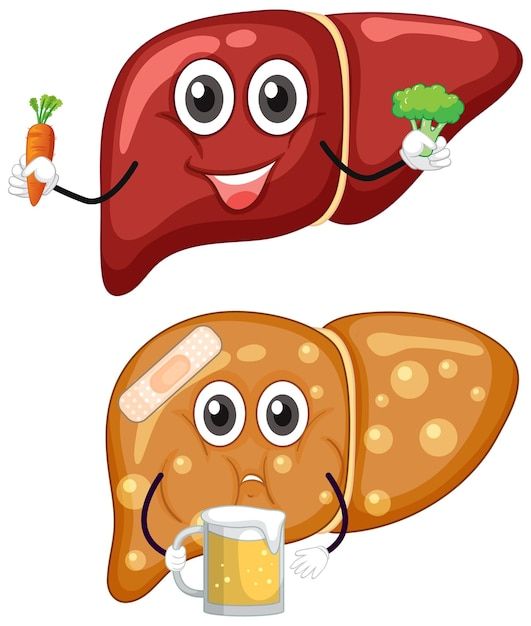This article will address myths and realities about liver diseases. Hepatic diseases are often confusing due to the many myths that circulate on it in society. Understanding them is crucial to make timely decisions about liver health.
1. Myth: Only people who drink excess alcohol can have liver diseases
A common belief is that liver diseases only affect those who abuse alcohol. However, this is not entirely true. While excessive alcohol consumption is a significant cause of liver damage, other conditions may affect the liver. Non –alcoholic fatty liver disease (NAFLD), for example, is a condition that affects people who do not drink alcohol. This disease is related to obesity, type 2 diabetes and other metabolic factors. In short, liver diseases can develop for several reasons, not just alcohol.
2. Myth: Liver diseases always show obvious symptoms
In general, it is believed that liver diseases have clear symptoms, such as skin yellowing (jaundice). However, many people with early liver diseases do not experience notable symptoms. Particularly in the early stages, liver diseases can be “silent” and only detect through blood analysis or images. Consequently, regular medical controls are vital to detect liver problems early.

3. Myth: Herbal supplements are safe for the liver
Many believe that because a product is “natural”, it is automatically safe, but some herbal supplements can cause liver damage. For example, certain products containing Kava or Chaparral have been associated with liver toxicity. In addition, supplements are only regulated as strictly as medications, which can lead to incorrect contamination or doses. For this reason, it is essential to consult a doctor before taking any supplement, especially if you already have a liver condition.
4. Myth: You just have to worry about hepatitis if you travel abroad
Among myths and realities about liver diseases, many people believe that hepatitis is just a concern for travelers, but the reality is that hepatitis infections, especially hepatitis B and C, are a worldwide problem. In addition, these infections can be transmitted through bloody transfusions, sexual contact and mother to a child during birth. Therefore, it is important to take adequate precautions, such as hepatitis B vaccination and avoid risky behaviors that could expose it to the hepatitis virus.
5. Myth: Liver damage is always irreversible
Before reaching conclusions, it is crucial to understand that the liver can regenerate and heal if the damage is detected early and adequate measures are taken. However, in advanced cases of liver disease, such as cirrhosis, damage can be permanent and may require a liver transplant. Therefore, it is important to act proactively in the face of any sign of liver problems.














